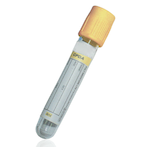
- Home
- Clinical Chemistry Tests
- IGF-1 (Insulin-like Growth Factor)
IGF-1 (Insulin-like Growth Factor)
Specimen Volume
1 mL blood (250ul serum)Sample Preparation
Centrifuge and separate serum, store frozen. Serum stable at 4C for up to 8 days, thereafter store frozen
Turnaround Time
7 daysSample Processing In Laboratory
Usual
Sample Stability
4C for 8 days, -20C thereafter
General Information
Insulin-like growth factor - 1 (IGF-1) has sequence similarity to insulin, and similar biological functions as insulin e.g. inhibits lipolysis, increases glucose oxidation in adipose tissues. Other functions include growth-promoting effects on cartilage and enhanced synthesis of proteoglycans and collagen. IGF-1 levels normally are low in early childhood, increase gradually during childhood, peak during puberty, and then decline in adult life. The IGF-1 test is an indirect measure of the average amount of growth hormone (GH) being produced by the body. The concentration of IGF-1 is stable throughout the day, making it a useful indicator of average GH levels (as GH has pulsatile secretion).
Patient Preparation
None
Notes
IGF-1 is measured to help diagnose the cause of growth abnormalities and to evaluate pituitary function. (Formerly known as somatomedin)
IGF-1 concentrations are high in states of Growth Hormone excess and low in states of Growth Hormone deficiency.
Serum levels of IGF-1 are also low in patients with acute or chronic protein or calorie deprivation.
Reference Range
Age and gender related reference ranges, please contact laboratory (ext.16543)
Specifications
- EQA Status: NEQAS
- EQAS Scheme: Yes
Link to Further Information
https://pinboard.in/u:duty_biochemist/t:IGF-1/Related Tests
Growth Hormone (GH)Creation Date
Monday, 08 August 2011Modification Date
Thursday, 28 June 2018General Information
Location of Laboratories
Copyright UHB Pathology 2018
Protection of Personal Information – Clinical Laboratory Services comply with the Trust Data Protection Policy and have procedures in place to allow the Directorate and it’s employees to comply with the Data Protection Act 1998 and associated best practice and guidance.
University Hospitals Birmingham medical laboratories at Queen Elizabeth Hospital, Heartlands Hospital, Good Hope Hospital and Solihull Hospital are UKAS (United Kingdom Accreditation Service) accredited to the ISO 15189:2012 standard. For a list of accredited tests and other information please visit the UKAS website using the following link: https://www.ukas.com/find-an-organisation/
- Molecular Pathology is a UKAS accredited medical laboratory No. 8759
- Biochemistry is a UKAS accredited medical laboratory No. 8910
- Haematology and Transfusion is a UKAS accredited medical laboratory No. 8784
- Clinical Microbiology is a UKAS accredited medical laboratory No. 8760
- Cellular Pathology is a UKAS accredited medical laboratory No. 10141
- Musculoskeletal laboratory is a UKAS accredited medical laboratory No. 9897
- Heartlands, Good Hope and Solihull Hospital pathology laboratories are a UKAS accredited medical laboratory No.8217.
Tests not appearing on the UKAS Schedule of Accreditation currently remain outside of our scope of accreditation. However, these tests have been validated to the same high standard as accredited tests and are performed by the same trained and competent staff.
For further test information, please visit the test database: http://qehbpathology.uk/test-database
For further information contact Louise Fallon, Quality Manager, 0121 371 5962
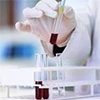 Biochemistry
Biochemistry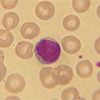 Haematology and Transfusion
Haematology and Transfusion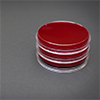 Clinical Microbiology (Including Virology)
Clinical Microbiology (Including Virology)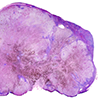 Cellular Pathology
Cellular Pathology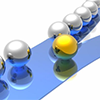 General Information
General Information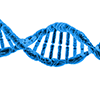 Molecular Pathology
Molecular Pathology